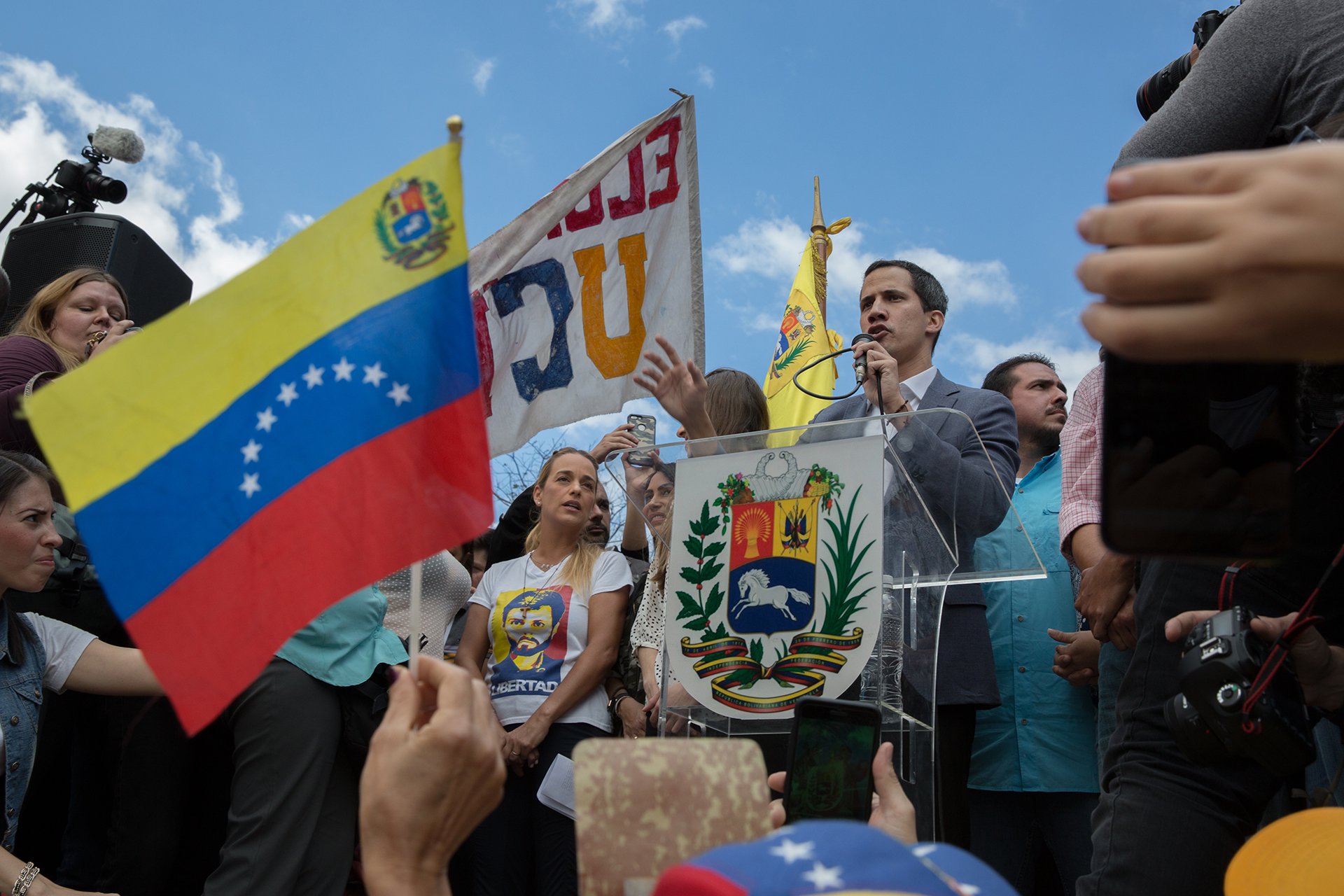There is suddenly a whole new level of anxiety in the humanitarian community over the plight of Venezuela.
On top of longstanding concerns over chronic shortages of food and medicine reaching the country, there’s now real worry about the increasingly blatant politicisation of aid, as the internationally backed opposition movement puts efforts to bring humanitarian supplies into the country at the centre of its messaging strategy against the regime.
Concerns of a humanitarian circus aren’t being helped by Richard Branson’s “Venezuela Aid” concert – a Live Aid-style extravaganza to be held in Cúcuta, just across the Colombian border on Friday. The concert, bringing together some of Latin Pop’s biggest stars, adds a bizarre touch to a complex political-military-humanitarian picture that, some worry, could easily descend into civil war.
It’s clear that the opposition leaders lined up behind Juan Guaidó are using humanitarian aid chiefly as a political tool.
It’s clear that the opposition leaders lined up behind Juan Guaidó are using humanitarian aid chiefly as a political tool – one aimed squarely at Venezuela’s military establishment for the purpose of getting them to turn on President Nicolás Maduro’s government. Guaidó, who is now recognised as interim president by most of the western hemisphere and Europe but doesn’t control the military, wants to make it crystal clear to them that if they abandon Maduro the rest of the world is ready and able to move quickly to bring desperately needed food and medicine into the country.
The politics here are smart: Guaidó has skillfully pushed Maduro into the hugely unpopular position of having to reject help for people in desperate need. Guaidó is calculating that the move will eventually lead to a mass military defection, and there is good reason to think that – in purely political terms at least – it might well succeed.
However, none of this is likely to assuage concerns in the humanitarian community, which is aghast at the way aid has been turned into little more than just another weapon in the bitter and longrunning struggle for power in Caracas.
On a fundamental level, the humanitarian community can never be seen to violate its principle of political neutrality: even if the opposition tactic does prove effective (which is a long way from a given), for the aid sector to back it would set a precedent that stores up any amount of trouble for the future. The International Committee of the Red Cross has already bowed out of the border aid operation – being led by Colombia and the United States – over these concerns. This is only natural.
But concern about the showdown and the Cúcuta concert goes beyond a general reticence to politicise aid. The larger problem is that when aid becomes this politicised, there's no room left for a realistic assessment of Venezuela's humanitarian needs.
On 14 February, for instance, the Organization of American States regional body held a highly politicised donors’ conference in Washington, D.C. that ended with much self-congratulatory talk of “$100 million in new pledges” of humanitarian aid to Venezuela.
The number raised eyebrows for several reasons. First, the OAS didn’t publish a detailed breakdown of exactly who pledged what and for when, sowing seeds of doubt about how solid or serious the pledges are. Second, no monitoring, evaluation, or control mechanism of any kind was announced – which, again, can only lead the cynical to doubt how serious the whole enterprise is.
And finally – and most seriously – the $100 million amount is completely out of proportion with even the most conservative estimates of the scale of need in Venezuela. Optimistic predictions of the impact of recent US oil sanctions alone suggest the country’s food imports will drop $120 million per month, and that is from inadequate levels that already saw three in four Venezuelans lose body weight due to hunger last year. And that’s just food, not to mention medicine, other supplies, fuel, etc.
It could be remembered as the prelude to a catastrophe on a scale that the western hemisphere hasn’t seen in decades.
In order to make a dent in the real humanitarian needs Venezuelans face, the OAS would have to hold that same donor conference once every three weeks or so for the foreseeable future. Even then, if the aid continued to be held up at the border, it would do no good.
The basic message here is that aid-as-politics turns out to be incompatible with aid-as-aid in the Venezuelan context. If Guaidó’s strategy pans out and delivers a knockout blow to the Maduro regime in the near future, paving the way for large-scale relief efforts under a new government, it will be hailed as a masterstroke. But if it fails and the Maduro clique manages to entrench itself in power, it could be remembered as the prelude to a catastrophe on a scale that the western hemisphere hasn’t seen in decades.
What is clear is that the Venezuelan opposition – alongside powerful allies in the United States, Colombia, Brazil, and Europe – has chosen an exceptionally risky approach without a credible Plan B. For Venezuelans’ sake, we can only hope it works.





